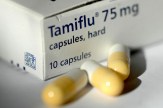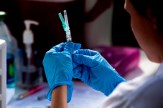Going to the 2021 Tokyo Olympics–to study athlete injuries
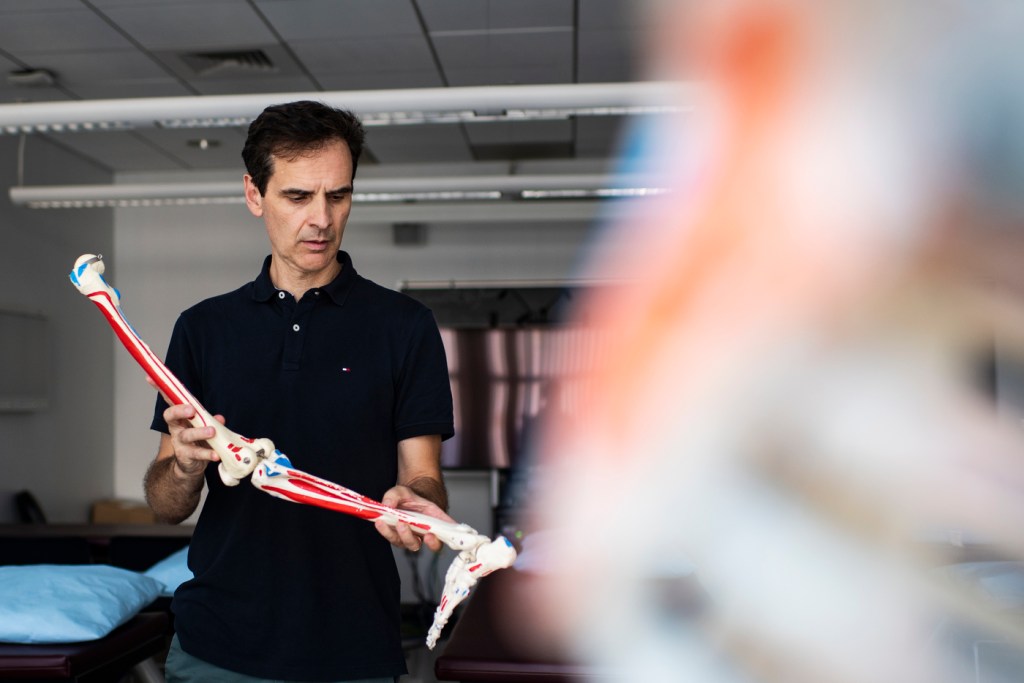
Alexandre Lopes, a Northeastern professor, will be attending his seventh Olympics later this month in Tokyo. He is part of an international panel that researches the health of athletes at the Games.
For the past three Olympics, Lopes has contributed to reports that have helped the International Olympic Committee and its sports federations develop plans to help prevent injuries among athletes.
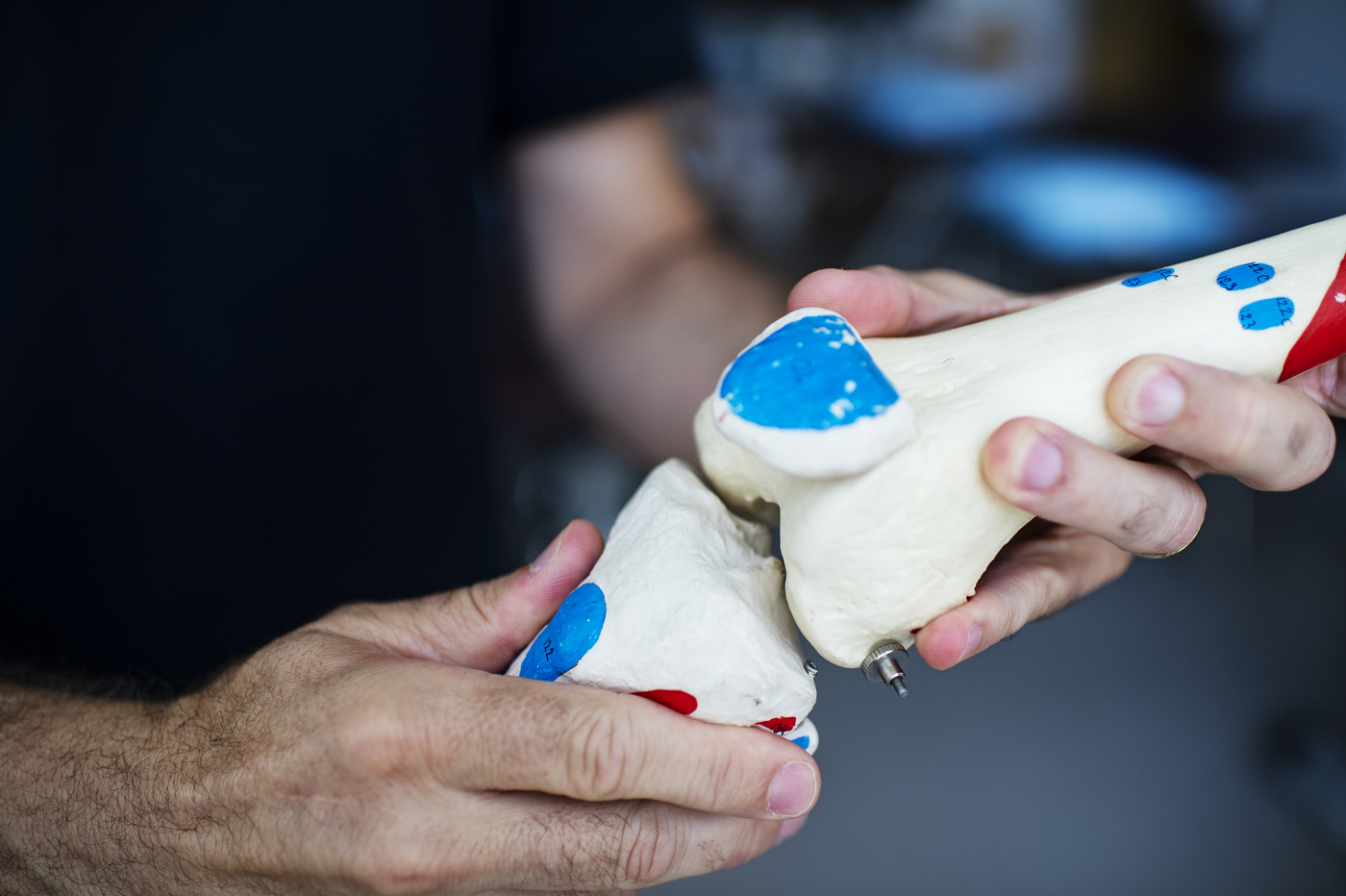
Lopes will be attending his seventh Olympic Games as a physical therapist or researcher. Photo by Alyssa Stone/Northeastern University
“Maybe six months after the end of the Games, we will publish a paper about the conclusion of this research in the British Journal of Sports Medicine,” says Lopes, a clinical professor in physical therapy, movement and rehabilitation sciences. “I believe that this article will impact a lot of the international [sports] federations and the athletes.”
Lopes served as a physical therapist to athletes from his native Brazil in track and field as well as bobsled at Olympics from 2002 to 2012. At the 2016 Games in Rio de Janeiro, he began contributing to the Olympic movement as a researcher.
Japan is experiencing an extended surge of COVID-19 cases, which has convinced a majority of residents that the Olympics should be postponed or canceled. During his initial 14 days in Tokyo, Lopes says he will be operating in a COVID-19 bubble environment that will prevent him from using public transportation. He expects to be restricted to his hotel, the Olympic Village, and the competition facilities that he will be required to visit while collecting data. But he is hoping as the Games go on that he’ll be able to attend a variety of athletic events in Tokyo—including his favorite, track and field.
Everyone is aware of the differences between weekend warriors and the elite competitors at the Olympics. But do you see similarities?
I see more similarities than you would imagine. Athletes who go to the Olympics have their list of motivations—but recreational athletes have a huge list as well. If you are wanting to run the Boston Marathon or the New York Marathon, or you’re dedicated to triathlon, you don’t need to be a professional to dedicate four or five hours every day.
Why is your work important?
If you go to the Olympics, it’s probably because at some point of your career you did not have big injuries—or at least you understand how to deal with injuries. The very successful athletes listen to their body, and they know how to decrease their work when they have injuries.
Sometimes you can see that somebody is injured but they do not respect the body and they keep working, they keep training, and then they have a very serious injury. You have to assess what is happening to your body.
How can athletes avoid injuries?
There is only one reason for pain in our bodies: Pain is like an alarm.
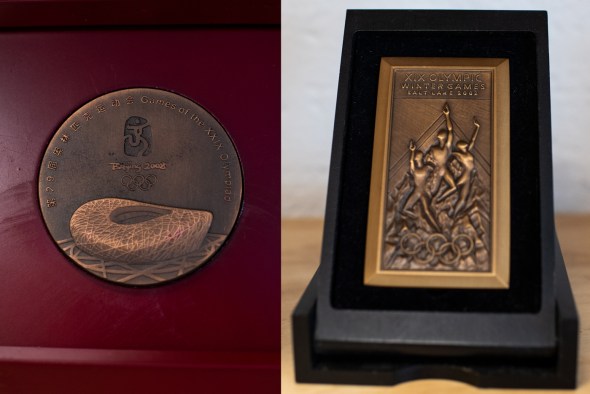
Memorabilia from the Beijing and Salt Lake City Olympics are on display in the office of Professor Alexandre Lopes, a physical therapy professor at Northeastern’s Bouve College of Health Sciences. Photo by Alyssa Stone/Northeastern University
If you have an alarm in your house, and you hear the beep sounding, it is telling you that something has happened.
But some people don’t want to hear this from their bodies. The pain is like the alarm showing you that something is happening that is not normal.
You can try to convince yourself that pain is normal. It is not. The message ‘no pain, no gain’ is a terrible message. One of my goals as a physical therapist is to explain the difference between pain and soreness—and to convince people that pain is not normal.
Are you concerned about going to the Olympics during the COVID-19 pandemic?
I am fully vaccinated, but I know this does not mean I will be 100 percent safe. But we are researching injury and illness, and I believe [the pandemic] has increased our responsibility to measure what happens with the athletes.
We will be wearing masks and staying inside the hotel, but I believe it’s the price to work on this project. I’m very excited to be part of this. When you are a health professional, you are increasing your risk—but that is part of your job.
Are you hoping to do similar work with student-athletes at Northeastern?
We are starting to have discussions to implement some sort of study with varsity athletes at Northeastern. We will be trying to follow the athletes and to monitor their injuries during the seasons. We will try to reproduce at Northeastern on a smaller scale the study that is happening at the Olympics.
For media inquiries, please contact Marirose Sartoretto at m.sartoretto@northeastern.edu or 617-373-5718.


